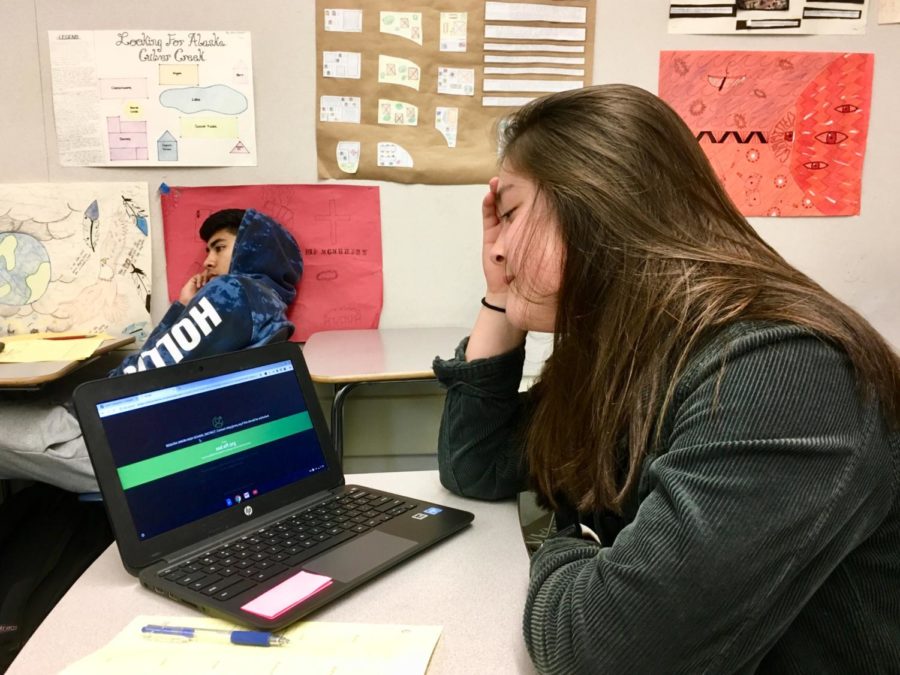It isn’t uncommon for students using a school-issued device or the campus wifi to find many of their online sources blocked by the Sequoia Union High School District.
There have been reports of “excessive” blocking of websites on school Chromebooks that in some cases hinder the user’s ability to do research or perform online activities for the class.
“The blocking of sites affects my ability to work online. When I try to research subjects I’m unclear about and run into sites that aren’t usable, I end up struggling in class when I could easily and quickly access this information if the pages weren’t blocked,” said Adan Matute, a sophomore.
Matute is not alone in struggling with the online restrictions put in place by the school provided technology; there are others who share his concern with accomplishing assignments without the use of restricted websites. There is even the idea that the online restrictions have increased their reach over previously accessible sites.
“The number of blocked sites have definitely increased. I’m not even allowed to watch a Youtube video assigned for my biotech class, and I ended up getting a zero because of it!” said Madison Stancil, a sophomore at Carlmont.
When discussing the necessity of online monitoring and blocking of sites on school devices, the purpose is often called into question.
“Schools block sites to ensure the safety of all students,” said Denise Steward, an English and AVID teacher at Carlmont. ” I agree with blocking social media, sites that are not appropriate for high school or that are used incite violent behavior.”
While there certainly are benefits and understandable restrictions that are set in place by these precautions, that is not to say that the execution of these restrictions should go without careful consideration and revision.
“If I could change the guidelines so that it would improve the restrictions, I would make it so that they block only the things we shouldn’t look at, and not important sites that hold information needed for our research,” said Malia Pargas, a sophomore.
Other areas in which the online restrictions should be changed come in the form of forcing students to look for loopholes to complete these assignments. Most of these loopholes are not accessible to all students.
“Some teachers unknowingly assign work with links and you can’t even access unless you have your wifi turned off, offering no alternative to students who may not have access to cellular data or have phones,” Matute said.
According to the Electronic Frontier Foundation, the implementation of school technology can discriminate against students from lower income families or those who have limited access to technology by giving them no other choice than to use a school monitored device for online access.
However, it is not the idea of online restrictions that is to blame for these inconveniences, but rather the lack of revision being implemented to make the policies as agreeable and accessible for the educational well-being of all students.
“The blocking affects my ability to do work,” Pargas said. “The district needs to take a step back, look at what they are doing, and listen to outside complaints because it will only get worse if they don’t.”


